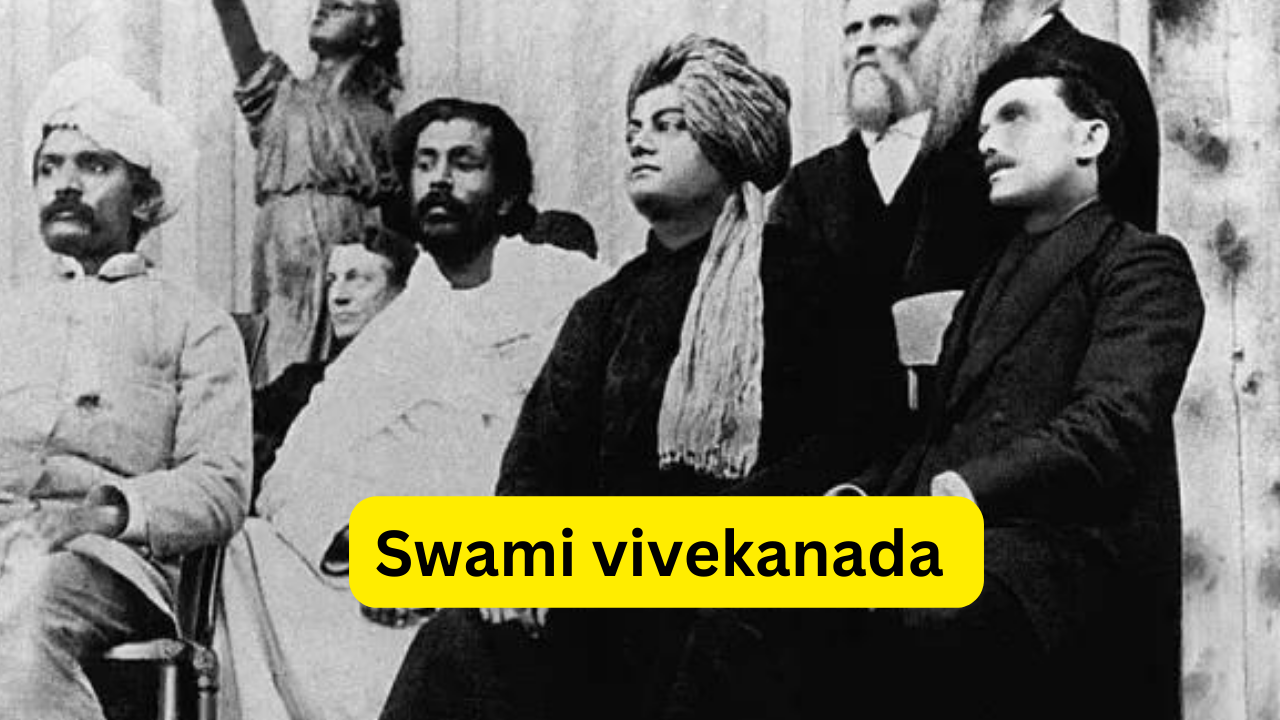Introduction:
Swami Vivekananda, born as Narendranath Datta on January 12, 1863, in Calcutta, India, was a prominent Hindu monk and philosopher. He played a key role in introducing the Indian philosophies of Vedanta and Yoga to the Western world and is best known for his impactful speech at the World’s Parliament of Religions in Chicago in 1893.
Vivekananda was a disciple of the saint Ramakrishna Paramahansa and went on to establish the Ramakrishna Mission to propagate the teachings of his guru. His life and teachings continue to inspire millions, emphasizing the unity of all religions, the importance of practical spirituality, and the development of a fearless and self-confident mindset. Swami Vivekananda passed away on July 4, 1902, but his legacy endures as a beacon of wisdom and guidance for spiritual seekers around the globe.
Swami Vivekananda, a luminary of the 19th century, was not merely a spiritual leader but a guiding light for humanity. His life journey and profound lessons continue to resonate, offering timeless insights for personal and spiritual growth.
Early Life:
Born Narendranath Datta in 1863, young Vivekananda exhibited a curious mind and a compassionate heart. Growing up amidst the cultural richness of India, he was exposed to diverse thoughts and philosophies that later shaped his worldview.
Quest for knowledge:
Vivekananda’s insatiable thirst for knowledge led him to the revered saint, Ramakrishna Paramahansa. Under his guidance, Vivekanand delved into the depths of spirituality, imbibing the essence of Vedanta and the universality of all religions.
Chicago Address: A Global Impact:
In 1893, Swami Vivekananda mesmerized the audience at the World’s Parliament of Religions in Chicago with his iconic speech. He spoke passionately about the universal tolerance embedded in Indian philosophy, leaving an indelible mark and introducing the world to the principles of Vedanta.
Practical Vedanta: Application in Daily Life:
Swamiji emphasized the practicality of Vedanta, urging individuals to realize their divine potential. His teachings stressed the importance of combining spirituality with service to society, underscoring the idea that true worship is the service of humanity.
Harmony of Religions:
Vivekananda envisioned a world where different religions coexist harmoniously. He believed that each path was a valid way to reach the divine, fostering an environment of mutual respect and understanding among people of diverse faiths.
Fearlessness and self-confidence:
One of the hallmark lessons from Vivekananda’s life is the cultivation of fearlessness. He encouraged individuals to overcome obstacles with unwavering self-confidence, believing that true strength arises from within.
Education and character :
Swami Vivekananda emphasized holistic education that nurtures not only the intellect but also the character. He envisioned educational institutions that produce individuals with a strong moral compass, ready to contribute positively to society.
Legacy and Continuing Influence:
Even a century after his passing, Swami Vivekananda’s legacy endures. His teachings remain relevant, inspiring millions worldwide to lead a life of purpose, compassion, and self-realization.
Conclusion:
In the tapestry of human history, Swami Vivekananda’s life and teachings stand out as a timeless masterpiece. His call for universal brotherhood, practical spirituality, and fearlessness resonates with the core of human existence, providing a guiding light for those seeking wisdom and purpose in life.
